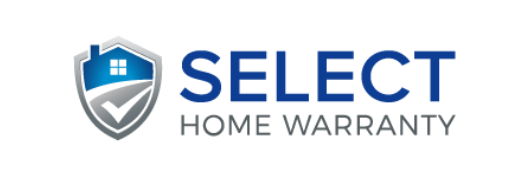 Last updated: July 30th, 2024
Last updated: July 30th, 2024
Preparing Your Home For Sale: A Step-by-Step Guide To Success

Selling your home can be an exciting yet daunting process. This comprehensive guide outlines a well-organized approach, empowering you to confidently navigate each step and maximize your chances of a successful sale.
Unveiling Your Home’s Selling Potential: A Roadmap to Success
Selling your home can be an exciting yet daunting process. A well-prepared property attracts more buyers, potentially leads to a faster sale, and can even fetch a higher price.

This comprehensive guide will equip you with a step-by-step approach to ensure your home is in its best selling condition.
1. Pre-Listing Preparations
Selling your home can be a whirlwind of activity, but a well-planned pre-listing phase is crucial for a smooth and successful sale. This guide delves into the essential steps before your property hits the market, ensuring it shines and attracts top dollar from potential buyers.
Market Research And Competitive Analysis
- Know Your Market: Understanding the current market conditions in your area is paramount. Research recent sales of comparable properties (similar size, location, features) to determine a competitive asking price. Utilize resources like online real estate platforms, realtor expertise, and local market reports.
- Identify Selling Points: Take an objective look at your property. What are its unique features and amenities that would appeal to potential buyers? Highlight things like a renovated kitchen, spacious backyard, energy-efficient upgrades, or proximity to desirable schools.
Financial Considerations
- Selling Costs: Factor in all the expenses associated with selling your home. These include realtor commissions, closing fees, potential moving costs, and any outstanding debts or liens on the property. Having a clear financial picture allows for realistic pricing and informed decision-making.
- Pricing Strategy: Once you understand the market value and selling costs, you can develop a pricing strategy with your realtor. This might involve setting a competitive asking price to generate interest or leaving room for negotiation.
Enhance Curb Appeal
- First Impressions Matter: The exterior of your home is a potential buyer’s first glimpse. Boost your curb appeal to create a positive and inviting impression.
- Landscaping: Trim overgrown bushes, add fresh mulch and colorful flowers, and ensure a well-maintained lawn.
- Paint & Repairs: A fresh coat of paint on the front door or exterior trim can make a difference. Address minor repairs like loose railings, cracked walkways, or faulty lighting fixtures.
- Porch Appeal: Stage your porch with a welcoming doormat, potted plants, or comfortable seating to create a warm and inviting entrance.
Declutter And Depersonalize
- Less Is More: Declutter your home to create a sense of spaciousness and allow potential buyers to envision their belongings in the space. Pack away unnecessary belongings, minimize clutter on countertops and shelves, and remove excessive personal items like family photos or collections.
- Neutralize The Space: While your home holds cherished memories, potential buyers must see themselves living there. Depersonalize your space by removing bold paint colors, excessive artwork, or overly specific décor. Opt for neutral tones and tasteful arrangements to create a broader appeal.
Deep Cleaning Is Essential
- Sparkling Cleanliness: Give your home a thorough cleaning from top to bottom. This includes carpets, floors, windows, appliances, and bathrooms. A clean and well-maintained home showcases pride of ownership and creates a positive impression for potential buyers. Pay attention to details like removing cobwebs, dusting ceiling fans, and ensuring a fresh scent throughout the house.
Stage The Home
- Professional Touch: Consider professional home staging, especially if your home is vacant or lacks a clear flow. Stagers can arrange furniture to highlight the best features of each room, create designated living areas, and add tasteful décor to create a warm and inviting atmosphere.
- DIY Staging: Research tips and techniques online to stage yourself. Strategically utilize existing furniture, focus on functionality and flow, and prioritize clean lines and neutral colors.
Gather Important Documents
Be Prepared: Start gathering essential documents early in the process. This might include your property title, mortgage statements, homeowners insurance documentation, appraisal reports (if available), and any warranties or guarantees associated with major appliances or home systems. Having these documents readily available streamlines the selling process.
2. Partnering with a Real Estate Agent
A skilled agent acts as your trusted advisor, negotiator, and marketing partner throughout the process. This guide explores the importance of finding the perfect real estate agent and navigating a successful partnership.
The Value Of A Real Estate Agent
- Market Expertise: Agents possess a deep understanding of your local market, including current trends, pricing strategies, and buyer demographics. They can help you determine a competitive asking price and position your property for success.
- Marketing And Negotiation Skills: Leveraging their experience and network, agents develop targeted marketing campaigns to attract qualified buyers. Their negotiation skills ensure you achieve the best possible outcome when considering offers.
- Guidance And Paperwork: The real estate transaction process can be complex. Agents guide you through paperwork, disclosures, and legalities, ensuring a smooth and stress-free experience.
- Time-Saving Efficiency: Agents handle the heavy lifting, such as scheduling showings, qualifying buyers, and coordinating communication. This frees up your valuable time and allows you to focus on other aspects of the selling process.
Finding The Right Agent
- Seek Referrals: Ask friends, family, and neighbors for recommendations of agents they have had positive experiences with.
- Interview Multiple Agents: Schedule interviews with several agents to assess their knowledge, experience, personality, and communication style. Find someone you feel comfortable working with who aligns with your selling goals.
- Ask Key Questions: During interviews, inquire about the agent’s experience in your neighborhood, marketing strategies, commission structure, and availability throughout the selling process.
Building A Strong Partnership
- Clear Communication: Maintain open and honest communication with your agent. Discuss your expectations, concerns, and any questions you might have.
- Provide Timely Information: Promptly respond to your agent’s requests for information or documents. Their efficiency relies on your cooperation.
- Trust And Respect: While the agent is a guide, the final decisions are yours. However, trust their expertise and respect their professional recommendations.
- Feedback And Collaboration: Be open to constructive feedback from your agent regarding the property’s presentation or asking price. Work collaboratively to achieve the best possible outcome.
Negotiations And Beyond
- Negotiation Expertise: Your agent advocates for you during negotiations, leveraging their experience and skills to secure the best price and terms for your sale.
- Closing Process Support: Agents ensure a smooth closing process, working with all parties to finalize paperwork and transfer ownership.
3. Listing Your Property
Listing your property is a pivotal step in selling your home. It’s your chance to create a captivating online presence and generate excitement among potential buyers. This detailed guide equips you with the knowledge to craft an effective listing that showcases your home’s true potential.
The Essential Elements Of A Compelling Listing
- High-Quality Photos: In today’s digital world, high-quality photographs are paramount. Invest in professional photography that captures the essence of your home’s best features.
- Interior Shots: Showcase spacious living areas, well-maintained kitchens and bathrooms, and unique architectural details.
- Exterior Shots: Highlight curb appeal with attractive landscaping, inviting entryways, and outdoor living spaces.
- Room For Improvement: Don’t shy away from showcasing potential improvement areas. Buyers appreciate transparency and can envision their own design choices.
- Property Description: Craft a compelling and informative description beyond basic facts. Here’s what to include:
- Key Selling Points: Highlight the unique features that set your home apart. Is it a spacious backyard, a renovated kitchen, or a desirable location?
- Benefits For Buyers: Go beyond features and focus on the lifestyle your home offers. Mention proximity to schools, parks, or amenities like shopping centers.
- Target Audience: Tailor your description to the ideal buyer for your property type. Use language that resonates with their needs and aspirations.
- Accuracy & Transparency: Be truthful and avoid exaggeration. Highlight positive aspects while acknowledging any limitations in a balanced way.
- Virtual Tour: Consider offering a virtual tour in today’s tech-savvy world. This allows potential buyers to explore your home from the comfort of their own devices, increasing accessibility and generating interest.
Optimizing Your Online Presence
- Multiple Listing Service (MLS): Ensure your property is listed on the MLS, the primary platform real estate agents use. Your realtor will handle this step.
- Compelling Headline: Craft an eye-catching headline that grabs attention and accurately reflects your property’s essence.
- Targeted Keywords: Include relevant keywords throughout your listing that potential buyers might use in their online searches.
- Social Media Promotion: With your realtor’s approval, promote your listing on social media platforms. Share high-quality photos and generate buzz among your network.
Additional Considerations
- Open House Details: If you plan to host open houses, clearly state the dates and times in your listing for easy scheduling by potential buyers.
- Pet-Friendliness: Indicate whether your home is pet-friendly, catering to a specific buyer demographic.
- School Information: For families with children, mention the school district and proximity to schools, if applicable.
- Community Highlights: Don’t forget to showcase the surrounding community! Highlight nearby parks, restaurants, shopping centers, or any other attractive features that enhance the desirability of your location.
- Realtor’s Expertise: When crafting your listing, leverage your realtor’s knowledge and experience. They can provide valuable insights into local market trends and buyer preferences.
- Feedback & Refinement: Be receptive to feedback from your realtor and hold a buyer preview to gather initial impressions. Use this feedback to refine your listing and address any identified gaps.
4. Marketing & Showings
Once you’ve prepped your home for selling and secured a realtor, the exciting phase of marketing and showings begins. This stage is crucial for generating buyer interest, securing viewings, and ultimately finding the perfect match for your property.
Crafting A Compelling Marketing Strategy
- Harnessing The Power Of Online Presence: The online world is a primary resource for home buyers. Partner with your realtor to create a captivating online listing that showcases your home’s best features.
- Detailed Property Description: Craft a compelling description highlighting selling points, unique features, and neighborhood benefits. Use keywords that potential buyers might search for (e.g., spacious living area, updated kitchen, close to schools).
- Targeted Online Platforms: Many real estate websites, social media platforms, and local online marketplaces can showcase your listing. Partner with your realtor to leverage their expertise and marketing tools to reach the right audience.
- Traditional Marketing Channels: While online marketing dominates, some sellers might consider traditional channels like print media advertising in local newspapers or community magazines, mainly if your target audience frequents these publications. Discuss these options with your realtor to determine the best fit for your property and target market.
Preparing For Showings: Making A Great First Impression
- Show-Ready Presentation: First impressions matter! Ensure your home is clean, decluttered, and inviting for potential buyers. Pay attention to details like:
- Cleanliness: Sparkling floors, tidy surfaces, and fresh towels in bathrooms create a positive impression.
- Decluttering: Pack away unnecessary belongings and personal items. Potential buyers must envision living in the space will not be overwhelmed by your belongings.
- Neutral Décor: Maintain a neutral color palette and minimize personal touches. This allows buyers to imagine their furniture and décor in the space.
- Lighting: Open curtains and blinds to allow natural light to showcase the space. Turn on lamps and overhead lights to create a warm and inviting atmosphere.
- Minor Repairs: Address any minor repairs or touch-ups that might detract from the overall presentation.
- Accommodating Showings: Be prepared to work with your realtor’s schedule and accommodate buyer requests for viewings. Flexibility during this phase can increase your chances of finding the right buyer quickly. Consider solutions like pet care or scheduling showings around work hours to minimize disruptions.
- Open Houses: Open houses can be a great way to generate interest and allow multiple buyers to view your home at once. If you decide to host an open house, ensure your home is extra show-ready and prepare for more visitors.
5. Negotiations & Closing
Negotiations and closing mark the culmination of your home-selling journey. Here’s a detailed breakdown to equip you for success in these crucial stages:
Negotiations
- Receiving Offers: Your realtor will present all offers to you, highlighting key details like purchase price, closing date, contingencies (conditions the buyer makes the purchase dependent on), and any proposed repairs.
- Counteroffers: Don’t be afraid to counteroffer! This is a common practice to reach an agreement that meets your needs. Your realtor will advise you on crafting a strategic counteroffer, considering the initial offer, market conditions, and your bottom line.
- Negotiation Strategies: Maintain a professional and respectful demeanor throughout negotiations. Highlight your property’s strengths while acknowledging the buyer’s perspective. Be prepared to negotiate on various aspects, such as price, closing date, and potential repairs.
Key Considerations For Negotiations
- Market Conditions: Is it a buyer’s or seller’s market? A strong seller’s market might allow for less negotiation on price, while a buyer’s market might require more flexibility.
- Comps (Comparable Sales): Knowing the recent sales of similar properties in your area empowers you to determine a fair price negotiation range.
- Contingencies: Review buyer contingencies carefully. Common contingencies include securing financing and a satisfactory home inspection. You can negotiate on the timeframe for these contingencies.
- Repair Requests: Be prepared to address buyer requests for repairs identified during the inspection. Negotiate the scope and cost of repairs based on the severity of the issues.
The Closing Process
- Closing Disclosure: This document outlines the final sale price, closing costs (fees paid by buyer and seller), and any prorated amounts (taxes, HOA fees). Carefully review and understand all details before signing.
- Escrow: Funds are typically held by a neutral third party until the closing is complete and ownership is transferred.
- Title Search: A title search ensures the property’s title is clear and free of liens or claims. Title insurance can protect against unforeseen issues.
- Walkthrough: A final walkthrough allows you to verify the property’s condition before closing.
- Preparing The Documents: Bring all necessary documents, such as identification, proof of insurance (if required), and copies of the signed closing documents.
- Signing & Funding: Review all documents carefully before signing. Once signed, the funds are disbursed from escrow, and ownership of the property is transferred to the buyer.
Tips For A Smooth Closing
- Clear Communication: Throughout the process, maintain open communication with your realtor and the buyer’s agent. Address any questions or concerns promptly.
- Stay Organized: Gather all required documents well before closing to avoid delays.
- Set Realistic Expectations: Be prepared for some back-and-forth during negotiations. Entering the process with realistic expectations and a flexible mindset can lead to a successful outcome.
Home Seller Checklist
This checklist outlines the key home selling tasks, categorized into essential stages. Use this as a roadmap to track progress and ensure a smooth selling experience. Each item can be easily transferred into a spreadsheet for digital tracking.
| Pre-Listing Preparations | ||
| Tasks | Completed | Notes |
| Research Recent Sales Of Comparable Properties | ||
| Factor In Selling Costs, Moving Expenses, And Outstanding Debts | ||
| Enhance Exterior With Landscaping, Painting, And Minor Repairs | ||
| Declutter Rooms, Pack Away Belongings, And Remove Personal Items | ||
| Deep Clean Carpets, Floors, Windows, And Appliances | ||
| Consider Professional Home Staging | ||
| Partnering with a Real Estate Agent | ||
| Tasks | Completed | Notes |
| Interview Real Estate Agents | ||
| Sign A Listing Agreement | ||
| Listing Your Property | ||
| Tasks | Completed | Notes |
| Invest In Professional Photography | ||
| Craft A Compelling Property Description | ||
| Marketing and Showings | ||
| Tasks | Completed | Notes |
| Develop A Comprehensive Marketing Plan | ||
| Make Home Accessible And Show-Ready | ||
| Host Open Houses | ||
| Negotiations and Closing | ||
| Tasks | Completed | Notes |
| Review All Offers (Price, Closing Date, Contingencies, Repairs) | ||
| Craft Strategic Counteroffers With Realtor’s Guidance | ||
| Negotiate On Price, Closing Date, And Repairs | ||
| Carefully Review Closing Disclosure (Final Sale Price, Closing Costs) | ||
| Understand The Role Of Escrow, Title Search, And Potential Title Insurance | ||
| Conduct Final Walkthrough To Verify Property Condition | ||
| Closing Day | ||
| Tasks | Completed | Notes |
| Bring All Necessary Documents | ||
| Review And Sign Closing Documents | ||
| Receive Sale Proceeds | ||
Home Seller Warranties: A Tool For A Smoother Home Sale
In the competitive world of real estate, any advantage that can attract buyers and ease their concerns is valuable. A home seller warranty can be one such tool, potentially contributing to a smoother home sale in a few key ways:
- Increased Buyer Confidence: A home warranty offers peace of mind to potential buyers by providing coverage for repairs of covered appliances and systems in the event of breakdowns after closing. This can particularly appeal to first-time homebuyers who might be apprehensive about unexpected repair costs.
- Enhanced Marketability: A home warranty might not be a significant differentiator in a seller’s market. However, in a buyer’s market with more options, a home warranty can make your property stand out by offering additional value and security to potential buyers.
- Negotiation Leverage: During negotiations, a home warranty can strengthen your position as a seller. It demonstrates your commitment to providing a well-maintained property and potentially allows for some negotiation flexibility on other aspects of the sale.
- Faster Closing: A home warranty can help expedite closing by addressing a buyer’s concerns about potential repair costs. Knowing they have warranty coverage can give buyers more confidence to move forward with the purchase.
Important Considerations For Homeowners
- Warranty Coverage: Carefully review the specific coverage details of the warranty you’re considering. Not all warranties cover everything; exclusions might exist for certain components or pre-existing conditions.
- Cost vs. Benefit: Weigh the warranty cost against the potential benefits. Consider factors like the age and condition of your home’s appliances and systems and overall market conditions.
- Buyer Preferences: While a warranty can appeal to some buyers, it might not be a deciding factor for everyone. Researching buyer preferences in your local market can help you decide whether a warranty is worthwhile.
Alternatives To Consider
- Repair Disclosure: Providing potential buyers with a comprehensive report detailing the condition of major appliances and systems in your home promotes transparency and alleviates some of their concerns.
- Offering Repair Credits: Instead of a warranty, you could offer potential buyers a credit for repairs after closing. This allows them to choose their preferred repair service provider.
Conclusion
Selling your home can be a whirlwind, but you can confidently navigate the process with careful preparation and a strategic approach. This guide has equipped you with a step-by-step roadmap, from pre-listing preparations to the final closing.
Remember, organization, clear communication, and a willingness to adapt are key ingredients for a successful sale. By following these steps and prioritizing a smooth experience for potential buyers, you can achieve your selling goals and embark on the exciting next chapter in your life.
related articles
 Discover First American Home Warranty Locations and What You Need to Know About Their Cover.
Discover First American Home Warranty Locations and What You Need to Know About Their Cover.
 Reviews of Home Warranty Companies Show You How to Determine If Your Home Is Covered
Reviews of Home Warranty Companies Show You How to Determine If Your Home Is Covered











